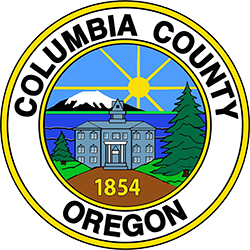Fires Safety and Prevention
Home Fire Safety
Fire safety begins with everyone in your household. Following simple safety measures can ensure that you prevent a home fire or, should a fire occur, that you can get out safely.
Get a smoke alarm
Properly installed and maintained smoke alarms are considered to be one of the best and least expensive means of providing an early warning of potentially deadly fire. They could reduce the risk of dying from a fire in your home by almost half.
Where should I put a smoke alarm?
On every level of your home, in each sleeping room and outside the sleeping area.
How to I maintain a smoke alarm?
A smoke alarm should have a button to push to test and make sure it is working. You should test smoke alarms once a month and change the batteries at least once a year. Replace any smoke alarms that are more than 10 years old. Smoke alarms do not last forever!
Smoke Alarm Resources
The Home Fire Campaign helps save lives by installing free smoke alarms in homes that don't have them, and by educating people about home fire safety. To learn more go to Redcross.org
Make an Escape Plan
Escape plans help you get out of your home quickly. In less than 30 seconds, a small flame can get completely out of control and turn into a major fire. It only takes minutes for a house to fill up with smoke and become engulfed in flames.
Practice Your Escape Plan
Make sure you know how to escape from every room in your home and that you know how to open windows and use escape ladders. The best plan should have two ways out of each room. If the primary route, like a door hallway or other room, is blocked, plan to escape out of a window or other way out. Make sure that windows are not stuck and screens or security bars can be removed easily from the inside.
Do not waste time saving property. Exit out the safest way, making sure to stay low below the smoke. Do not go back into a burning building for any reason, and alert firefighters if anyone is left inside.
As part of your escape plan, you should designate a meeting location safely away from your home but not too far that family members could be separated. Make sure to call 9-1-1 once you have evacuated.
Wildfire Prevention and Safety
More and more people are making their homes in woodland and natural settings. There you can enjoy the beauty of the environment but also face the very real danger of wildfire. Preventing wildfires and being prepared for them is a very real danger. In Columbia County, we have a mix of rural and urban environments that could potentially be at risk for wildfire.
Protect Your Home from Wildfire
Here are some things you can do to make sure you and your home is protected:
- Create a 30 foot non-combustible fire break around your home. This includes stacking firewood away from your home.
- Dispose of yard debris safely and consider alternatives to burning, such as composting, recycling or chipping.
- Trim branches along your driveway at least 14 feet high and 14 feet wide, and trimmed 10 feet from your home. Ask the power company to clear branches from power lines.
- Use non-combustible roofing materials, keep gutters free from debris and screen the vents under eaves and decks.
- Keep your yard well-watered and mowed short. Plant low growing, less flammable plants near your home.
- Create a Family Emergency Plan
When Wildfire Threatens
If you are warned of a wildfire in your area, listen to the radio or television news for reports and evacuation information. If authorities issue an evacuation notice, do so immediately. Here are some more tips for preparing to evacuate:
- Make sure everyone in your family has a go-kit or evacuation kit, including your pets.
- Attempt to take your pets if time allows, but if you have to leave them make sure they are confined to one space with plenty of food and water.
- Arrange temporary housing with a friend or relative or at a hotel or shelter.
- Park your car in the direction of escape.
- Make sure windows and doors are closed.
- Move flammable furniture to the center of the home or each room and away from windows and doors.
- Keep garden hoses connected to outside taps and water at least 15 feet surrounding your home.
- Shut off utilities such as a natural gas supply or propane tank.
For more information about Wildfire Prevention and Protection, you can visit the United States Fire Administration.

